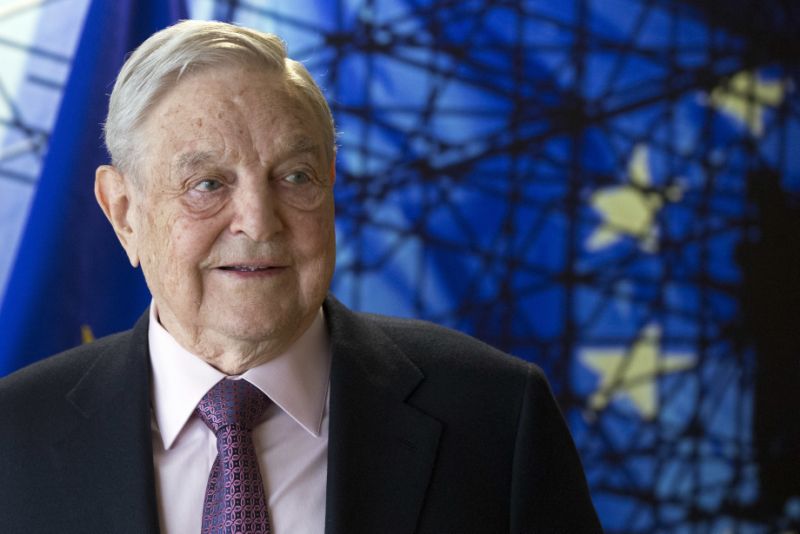HUNGARY’S LEADER: SOROS’ CRITICISM IS ‘DECLARATION OF WAR’
BY PABLO GORONDI
ASSOCIATED PRESS
BUDAPEST, Hungary (AP) — Hungary’s prime minister said Friday that harsh criticism by billionaire George Soros is a “declaration of war.” Soros has accused Prime Minister Viktor Orban of running a corrupt “mafia state.”
Orban alleged that the Hungarian-American investor was paying “agent-like networks” of non-governmental organizations to enforce his policies, including the promotion of migration, in Europe and Hungary.
“This is a declaration of war,” Orban said on state radio. “We are facing a financial speculator who has made a lot of money while … plunging many into poverty.”
Orban was replying to Soros’ speech Thursday at the Brussels Economic Forum where he spoke about the challenges faced by the European Union, including conflicts over the rule of law in Poland and Hungary.
“I am full of admiration for the courageous way the Hungarian people have resisted the deception and corruption of the mafia state the Orban regime has established,” Soros said, describing the “mafia state” as the current equivalent of a totalitarian regime – “one which maintains a facade of democracy but the rulers use their control of the media, the judiciary and the other levers of influence, to enrich and maintain themselves in power.”
Orban said Soros’ policies were “elitist and anti-democratic” because they were opposed by the Hungarian people.
He said the NGOs supported by Soros lacked transparency, operated “like a mafia” and charged them with carrying out Soros’ purported plan to bring a million migrants a year to Europe.
“The Hungarian government is defending the borders, built fences, and under these circumstances the Soros plan can’t be carried out,” said Orban, who has become a European standard bearer for opposition to immigration, especially by Muslims from the Middle East and Asia.
Orban did not name them, but government officials have singled out civic groups like corruption watchdog Transparency International and human rights advocates the Hungarian Helsinki Committee, which receive part of their funding from Soros’ Open Society Foundations.
The ideological conflict between Soros and Orban, who has vowed to make Hungary an “illiberal state,” has deepened in the past months after parliament approved legal changes which could force Central European University, founded by Soros, to leave Budapest.
Parliament is also expected to pass legislation in two weeks forcing NGOs which get more than about $25,000 a year from abroad to label themselves as foreign-funded, among other conditions which the NGOs consider intimidating and discriminatory.
The Venice Commission, an advisory body of the Council of Europe, the continent’s top human rights organization, noted concerns with the new NGO rules, which include fines or even the closure of groups failing to comply.
In a preliminary report released Friday, the commission said that the labeling of civic groups, “placed in the context of a virulent campaign carried out by some Hungarian authorities against foreign-funded NGOs,” could “adversely affect their legitimate activities and may raise a concern of discriminatory treatment.”
The commission called for consultations with NGOs before the law is adopted, questioned why sports and religious groups would be exempt and said the obligation for the groups to mention their status as being foreign funded on all printed and online publications seemed “excessive.”
